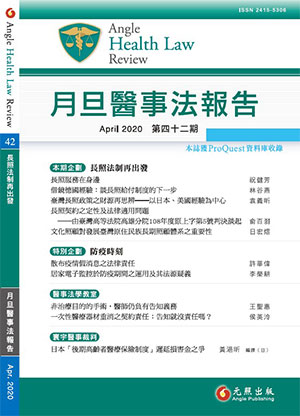臺灣長照政策之財源再思辨──以日本、美國經驗為中心【本期企劃】 試閱
Rethinking the Financing of Taiwan’s Long-term Care Policies: Focusing on the experience of Japan and the United States
臺灣的長期照顧政策實施後,各界屢有長照財源及人力不足之疑慮。而依長期照顧服務法規定,目前長照財源有遺贈稅與菸品稅之增額稅收,以及菸品健康福利捐等。此等機會稅,能否提供穩定的財源,進而建構一套健全的長照制度,不能無疑。因此,長照財源究竟應採行「稅收制」、「社會保險制」抑或「混合制」實有討論餘地。本文擬從日本與美國長照制度之實踐中,汲取經驗,盼能對臺灣長照制度財源之規劃有所助益。最後本文建議:一、財源籌措應遵守量能原則;二、臺灣長照制度宜採「混合制」;三、部分負擔額之設計值得參考;四、開源節流並重。
After the implementation of the long-term care policy in Taiwan, there are many doubts about the lack of financial resources and manpower. According to the Long-Term Care Services Act, the sources of the fund include the increased tax revenue from the adjustment of estate and gift tax rates, the adjustment of the taxable amount of tobacco and alcohol tax and health and welfare surcharge on tobacco. Whether these opportunity taxes can provide a stable financing and thus build a sound long-term care system is beyond doubt. Therefore, it is necessary to discuss whether to adopt “tax system,” “social insurance system” or “hybrid system” for long-term care. This article intends to learn from the practical operation of the long-term care system in Japan and the United States, hoping to be helpful to the financing of Taiwan’s long-term care system. Finally, this article proposes: 1. the principle of ability to pay should be followed in financing; 2. The long-term care system in Taiwan should adopt a “hybrid system”; 3. The design of copayment is worthy of reference; 4. Revenue-generating and cost-saving are both important.
034-059






